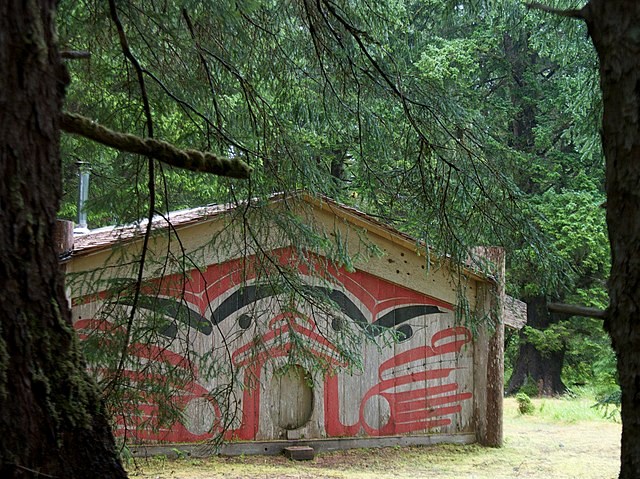The text of the agreement that will recognize Haida aboriginal title over all of Haida Gwaii was released today, shining a bit more light on the question of the status of private fee simple lands once the Haida have full title over all of Haida Gwaii.
The Rising Tide Haida Title Lands Agreement sets the stage for a transition in which the Haida will have title over all of Haida Gwaii.
“The Haida Nation has the inherent right and responsibility to caretake Haida Gwaii,” the agreement states as a foundational principle.
The transition period is set for two years, but may be extended.
“The initial focus of the transition process will be on land and resource decision-making on Haida Gwaii and the parties will begin by addressing protected areas, fishing lodges and forestry,” the agreement states.
The agreement must be ratified by the Haida Nation and the provincial Legislative Assembly.
The title agreement is like a treaty being negotiated piecemeal with the Haida Nation by the B.C. and Canadian governments.
Coincidental to the title agreement, in February the federal and provincial governments announced a self-governance agreement -- Bill S-16 -- that will set the stage for the Council of the Haida Nation to become formally recognized as the government of the Haida Nation.
Murray Rankin, Minister of Indigenous Relations and Reconciliation, describes the title agreement more as an out-of-court settlement than part of treaty making.
"This is the settlement of a lawsuit involving Aboriginal title," Rankin told BIV News. "It is not a treaty."
One concern that has been raised recently over the Haida title agreement is the inherent conflict between Aboriginal title, which is communal, and private, fee simple land.
"The agreement will confirm in as clear terms as legally possible that private property will remain unaffected by the declaration of Aboriginal title on Haida Gwaii," Rankin said. "Equally important, I suppose, the infrastructure and the local government jurisdiction will be unaffected."
The agreement provides for exceptions for private land, though it also provides for private lands to eventually be absorbed into title lands. The provisions on fee simple lands include the following:
- “The Haida Nation consents to and will honour fee simple interests, including those held by Haida citizens”
- “The Haida Nation consents to fee simple interests on Haida Gwaii continuing under British Columbia jurisdiction”
- “Acquisition of fee simple interests by the Council of the Haida Nation will only be done on a willing seller-willing buyer basis, by gift or will, or following a final escheat”
- “The Haida Nation may choose to deregister any fee simple lands that are held by the Council of the Haida Nation”
- “Where fee simple interests or other existing interests on Haida Gwaii held by British Columbia are no longer needed by British Columbia for public infrastructure, the provision of public services, or other public purposes the parties will negotiate the return of those fee simple interests or other existing interests to the Haida Nation”
The agreement provides for the continuation of municipal and provincial laws to prevail on Haida Gwaii, but puts off a number of regulatory matters to future negotiations, including provincial taxation and the use of freshwater.
As for jurisdiction over former Crown resources, that is less clear. The agreement states that “land and resource management decisions on Haida Gwaii under provincial jurisdiction will be made consistent with Haida Aboriginal title.
"During the transition process, the parties will use the decision-making processes derived from the Kunst’aa guu - Kunst’aayah Reconciliation Protocol and the Haida Gwaii Reconciliation Act as amended to align with Haida Aboriginal title.”
Rankin said land use and resource decisions on Haida Gwaii are already being jointly made through a joint land use management process that has been in place for some time now.
"That process will continue, but it will expand its scope to other things," Rankin said. "For example, the Haida have indicated they wish to start in the two-year process to talk about management practices on protected areas. And then they want to go to forestry."
The law firm Cassels has raised questions over how Aboriginal title, which is communal in nature, and private fee simple land can coexist.
University of Saskatchewan law professor Dwight Newman, who was Canada Research Chair in Indigenous Rights in Constitutional and International Law from 2013 to 2023, agrees that there appears to be some legal inconsistencies in the agreement.
"It tries to rely on common law doctrines (with its schedule of definitions referring to the common law definitions) such as Aboriginal title while then asserting things within the agreement inconsistent with the common law doctrine," Newman said.
"There would, in my view, have been better ways of drafting this agreement with parties agreeing not to assert certain aspects of rights rather than having an agreement with inconsistencies that may undermine its legal status.
"I'm fully sympathetic with the objective of recognizing Haida Aboriginal title and finding a path forward that avoids unnecessary litigation, but I have to raise questions about whether such objectives have been achieved effectively through this legal instrument."


